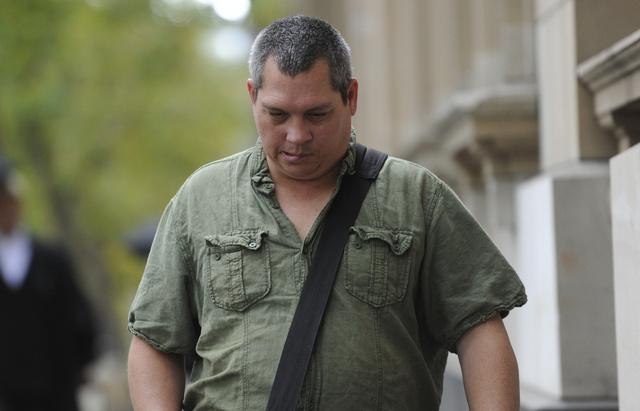
By Callum Ludwig
An arsonist responsible for contributing to the 2009 Black Saturday bushfires has been released from prison, with a local trauma psychologist advising that local residents affected by the disaster can be ‘taken back’ to the experience by this news.
Brendan Sokaluk was released on parole on Tuesday 30 April, having served 14 years of a 17-year and nine-month sentence on the condition he stays in secure accommodation 80km or more away from his former town of Churchill in the Latrobe Valley.
Yarra Glen resident and clinical psychologist Dr Rob Gordon OAM has dedicated his life’s work to supporting victims of disaster and said the news of Mr Sokaluk’s release can stir up the feelings from that day for the victims.
“They probably put it aside, hopefully for all this time but there are probably very strong feelings of anger and helplessness about such a thing happening which, presumably for many people, caused a huge change in their life in various ways and it’ll take them back to those really raw, painful feelings,” he said.
“The problem is the legal process is usually not very satisfying for the victims, and the natural feeling is that the legal process should be a bit of a solution for the victims but it usually isn’t.”
In 2012, former CFA volunteer Mr Sokaluk was found guilty in the Victorian Supreme Court of ten counts of arson causing death by deliberately starting fires in multiple locations that contributed to the Black Saturday disaster on 7 February 2009.
A Victoria Police spokesperson said they are aware of the release from prison on 30 April of a 54-year-old man.
“The man has been released on parole and is subject to a range of conditions,” they said.
“The man was charged with a range of offences following a fire in Churchill in 2009.”
“Victoria Police is always pro-active in monitoring those in the community who are subject to these conditions and have a history of high-risk offending,” the Victoria Police spokesperson said.
“It would not be appropriate to comment further on specifics, however the safety of the community remains our number one priority.”
The jury in Mr Sokaluk’s case heard that he had sent an anonymous email to Crime Stoppers saying he witnessed a firefighter in a four-wheel drive deliberately lighting fires that day, made a Triple Zero call to report the rapidly growing fire and later told police in his interview that he had accidentally started the fire by flicking cigarette ash from his car.
Dr Gordon said the punishment for an offender has to be related to things like the legislation, the penalties that can be given and the possibility of rehabilitation which don’t mean much to the people who have been hurt by it.
“People think that it’s really important that justice is done and that people who cause such a lot of harm have some serious consequences,” he said.
“I think it’s really important that the people who’ve been hurt don’t make their recovery depend on what happens to that person (the offender) because it’s never going to be exactly what’s needed,”
“What’s important for them is to actually reconnect with their lives and rebuild their future plans with whatever changes have happened, that’s the recipe we know to a good recovery.”
The Black Saturday disaster killed 173 people, burnt over 450,000 hectares of land and destroyed 3500 buildings including more than 2000 houses.
Mr Sokaluk’s starting of the Churchill fire was found to be directly responsible for 10 deaths and is believed to have resulted in the burning of over 36,000 hectares of land and razed more than 150 homes in the Churchill area.
Dr Gordon said there are a few things he recommends victims of the disaster do at this time if they are distressed by Mr Sokaluk’s release.
“Try and work out who you can talk things over with friends, family or other people in the community because when we communicate our feelings about things and our thoughts and attitudes, putting them into words makes them clearer, and in making them clearer we can think about them and get them into a better perspective,” he said.
“The second thing I’d suggest is, during the time of heightened emotion like this, try to make sure that you can do things to really value life, do some nice things for yourself, be with the people important to you and if people have rebuilt, celebrate what you’ve been able to achieve,”
“The third thing I’d suggest is to think about some really tangible ways of taking care of your health and your emotional life; making sure that you eat well, get plenty of rest and schedule some outings over the next few weeks.”
Dr Gordon himself fled his home in Yarra Glen to escape the Black Saturday fires.
Dr Gordon said it’s better for victims to let go of thoughts about perpetrators like Mr Sokaluk.
“It’s never enough is a feeling that people can have, but it must be a big chunk of a person’s life now and they’ll probably be a different person now, but you won’t know that,” he said.
“We have to let go of that, there would have been some good people working in the judicial system that have hopefully done some work with this person and maybe they’ve had a chance to think about what they did and learned from it,”
“This is where we get into a loop, when we start chewing over something that we don’t really understand.”






